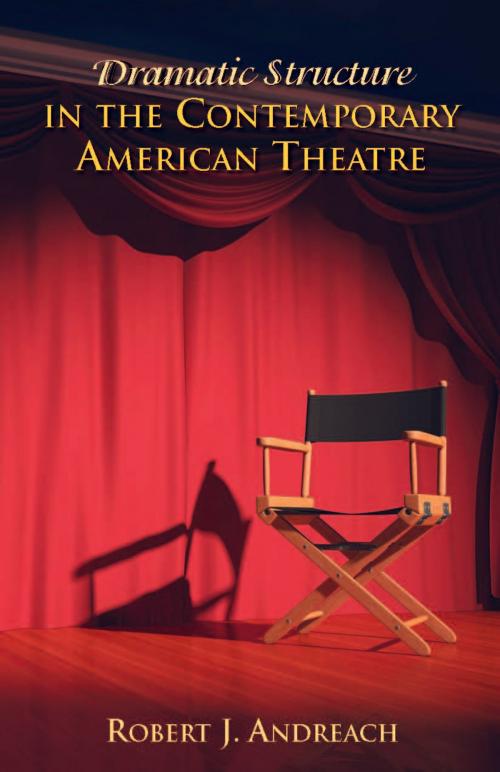Dramatic Structure in the Contemporary American Theatre
Fiction & Literature, Literary Theory & Criticism| Author: | Robert Andreach | ISBN: | 9781938288340 |
| Publisher: | Terra Nova Books | Publication: | December 1, 2017 |
| Imprint: | Terra Nova Books | Language: | English |
| Author: | Robert Andreach |
| ISBN: | 9781938288340 |
| Publisher: | Terra Nova Books |
| Publication: | December 1, 2017 |
| Imprint: | Terra Nova Books |
| Language: | English |
In this follow-up to his 2012 The Contemporary American Dramatic Trilogy, Robert J. Andreach continues his unique study of dramatic structure as evidenced through the overarching themes of contemporary American trilogies. The themes of the first play in a trilogy, he shows, can be far different from those developed as the sequence continues, citing examples from playwrights as varied as David Rabe and the Pulitzer Prize-winning Quiara Alegráa Hudes. Looking at the ways structure in a tragedy can be substituted for the Aristotelian plot, Andreach makes clear that because creating or reinventing oneself can be such a primary motivating force in American culture, a character's failed attempt to change the structure or plot of his or her life may indeed be tragic. The dramatic trilogy has been flourishing for some time now in new works and revivals of older ones by American, British, and European playwrights, with examples such as the Hunger Games trilogy and the Fifty Shades trilogy moving more recently even into the popular sphere. Combining his skills as both a professional reviewer of theater and a literary critic, Robert Andreach is in a unique position to provide coherence to what most observers perceive as an unrelated welter of contemporary theatrical experiences.
In this follow-up to his 2012 The Contemporary American Dramatic Trilogy, Robert J. Andreach continues his unique study of dramatic structure as evidenced through the overarching themes of contemporary American trilogies. The themes of the first play in a trilogy, he shows, can be far different from those developed as the sequence continues, citing examples from playwrights as varied as David Rabe and the Pulitzer Prize-winning Quiara Alegráa Hudes. Looking at the ways structure in a tragedy can be substituted for the Aristotelian plot, Andreach makes clear that because creating or reinventing oneself can be such a primary motivating force in American culture, a character's failed attempt to change the structure or plot of his or her life may indeed be tragic. The dramatic trilogy has been flourishing for some time now in new works and revivals of older ones by American, British, and European playwrights, with examples such as the Hunger Games trilogy and the Fifty Shades trilogy moving more recently even into the popular sphere. Combining his skills as both a professional reviewer of theater and a literary critic, Robert Andreach is in a unique position to provide coherence to what most observers perceive as an unrelated welter of contemporary theatrical experiences.















